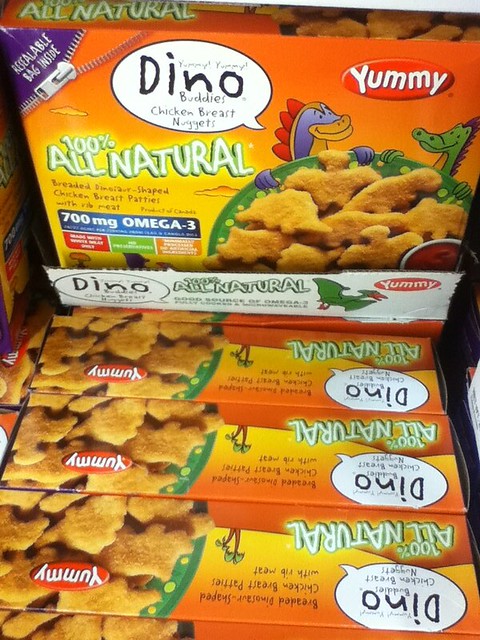If you enter a grocery store and see an item claiming to be “100% natural”, what associations do you make? Would you assume it’s less processed? Healthier? Possibly even organic? At least if you live in the United States, as Marion Nestle explains on her blog, none of those assumptions actually need to be the case. This is because the label “natural” – as opposed to organic, for example – has never been properly regulated by the US FDA (Food and Drug Administration), so they see the use of it as fair game as long as “the food does not contain added color, artificial flavors or synthetic substances.”

Image by Dawn Endico, via Flickr CC.
This means food companies can process their items as much as they would like to, use GMO ingredients, and even apparently circumvent those paltry rules (as Nestle’s example case, “Honey BBQ All Natural Potato Chips” which contain monosodium glutamate, yellow food coloring and another 16 ingredients besides potatoes and oil) since you would have to be subject to private litigation for your claim to be ruled out of order. Until that happens, it’s much easier to say “natural” and continue what you are doing rather than spending more on expensive organic inputs, all the while reaping the halo effect of a seemingly more healthful diet.
To make matters even more complex, the USDA (Department for Agriculture), responsible for meat and dairy labelling, has its own definitions on what “natural” means. Confusing to the max.
The EU, on the other hand, known for extensive regulatory activity, has a whole list of nutritional claims and requirements needed to be able to use them here. From my understanding, “natural” or “naturally” may only be used as a prefix for another claim, e.g. “natural source of omega-3 fatty acids”, if “a food naturally meets the condition(s) laid down in this Annex for the use of a nutritional claim“.
Have you ever been fooled by a food label?
Reblogged this on Science on the Land and commented:
argylesock says… Here are interesting words about the way foods are sold as ‘natural’. Mostly Janina talks about US groceries but she also links to the European laws about nutrition claims on food http://ec.europa.eu/food/food/labellingnutrition/claims/community_register/nutrition_claims_en.htm#25 including the word ‘natural’. You might also choose to look at some words of mine. I concluded that the word ‘natural’ is often irrelevant these days. ‘It’s not natural! Intensive farming, synthetic food and synthetic genes’ http://argylesock.wordpress.com/2013/06/20/its-not-natural-synthetic-genes-intensive-farming-and-synthetic-food/
Reblogged this on Beyond Meds and commented:
This is worth understanding. I don’t buy pretty much anything in boxes or cans anymore so I don’t think about this stuff much for myself. It’s well-worth understanding that most processed foods (anything in a can or box really) can be problematic. And that actually includes organic foods too. While those labeled “natural” are likely to be have even more issues as this article indicates. I’ve pretty much eliminated these issues by sticking to real whole foods. All “processing” happens in my kitchen as I prepare foods to eat. There are a few exceptions to that and in those instances I very carefully choose my food by studying labels. In general the fewer ingredients the better. And really, recognizing all ingredients as actual foods is pretty important too. I think that it’s fair to say that of the items I still get in a can or box, they pretty much all have ONE ingredient. So, yeah, the most processed food I now buy is raw sprouted almond butter. The only ingredient being ALMONDS.